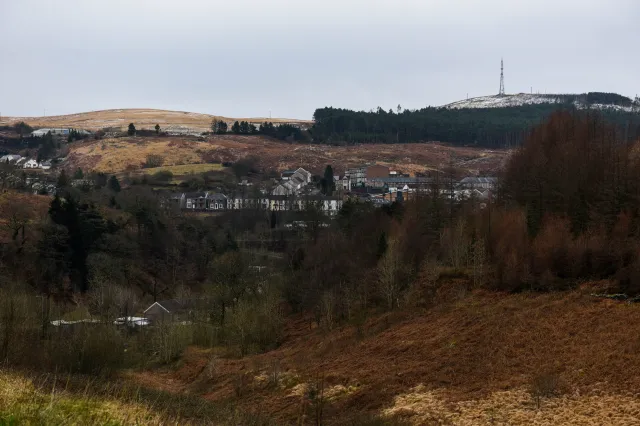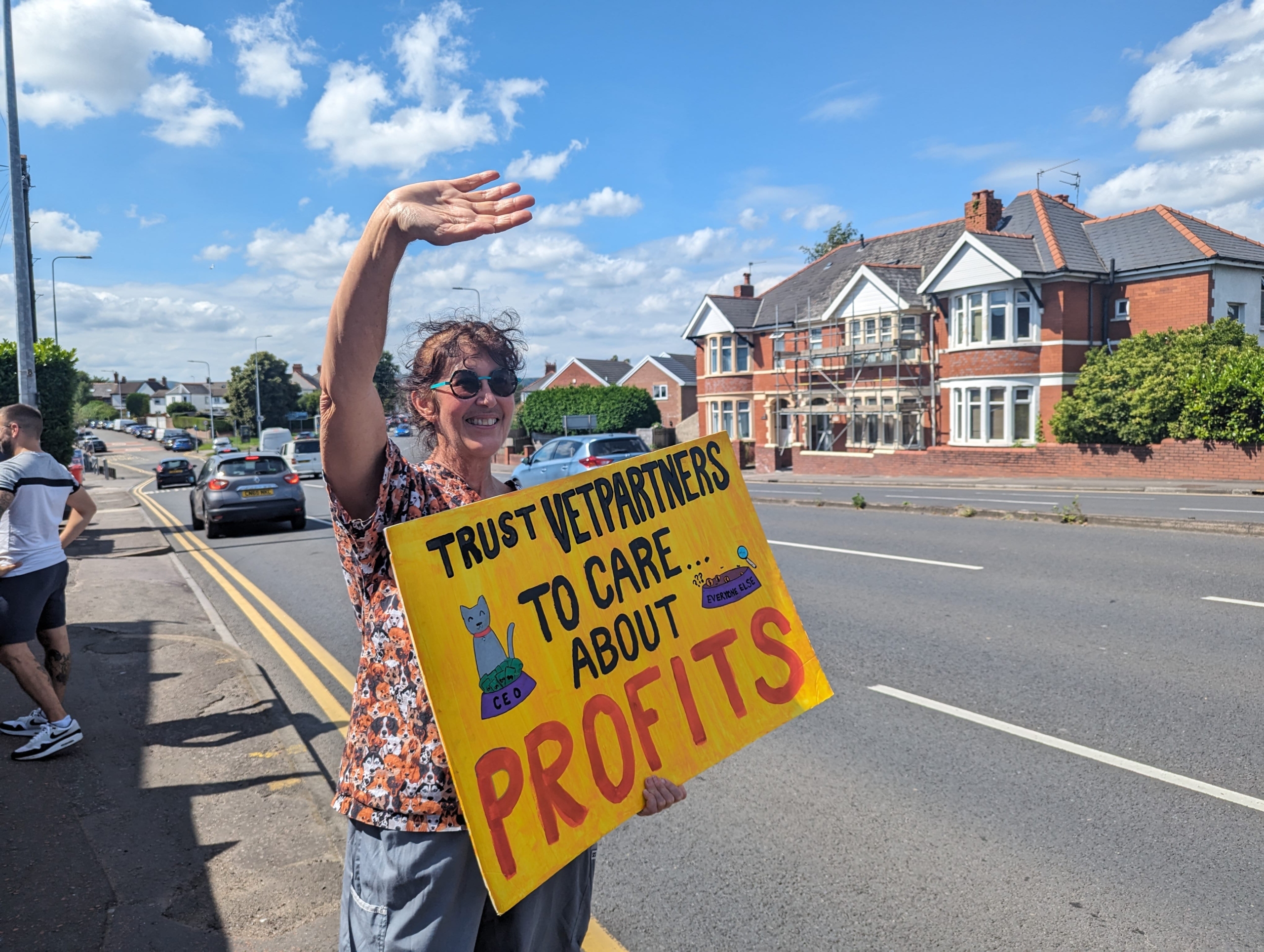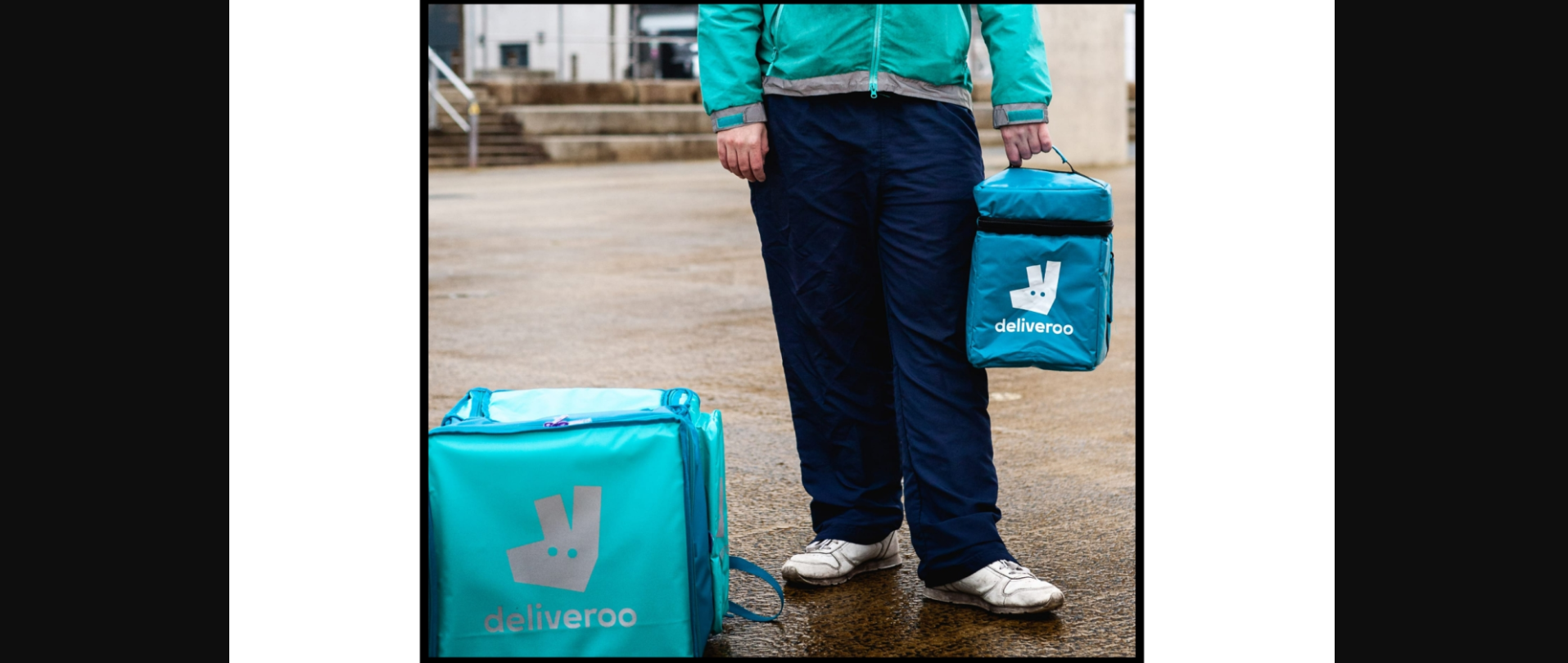
Away From The Idyll, Rural Poverty Is Rising
During the first years of the pandemic, interest in moving to the countryside boomed as people dreamt of a better life away from big towns and cities. But away from the rural idyll, a more worrying reality exists – an unfolding poverty crisis which is being ignored by politicians in Cardiff Bay. Mat Lee delves into the cost of living crisis in Powys, and speaks to one foodbank organiser about the unique set of challenges they face.
By Mat Lee. Cover image: poverty in rural Wales is rising, Veronika Merkova
Having moved from North Wales, I am lucky enough to be able to call the Irfon Valley (Dyffryn Irfon) in Powys my home. It is renowned for its lush, green landscapes and tourists flock here for whacky sporting events such as the annual Man v Horse race and bog snorkelling. Down the road in Hay, thousands of well-heeled visitors arrive each year for the famous literary festival. Meanwhile, online posters marvel at the “quaint” Victorain architecture of Llandrindod.
This picture postcard image can mask the reality that, as the cost of living crisis presses on, many are struggling and poverty is rife. Figures from last year show that 23.4% of children in the county are living in poverty. Whilst this is by no means the highest figure in Wales, it is above the UK average (20.1%) and up from 17.5% in 2014/15. This is indicative of the failure of wages and benefits to keep pace with rising living costs, and of continued austerity.
Housing and heating
Whilst fuel bills have rocketed for everyone, for many in rural areas like Powys the problem is compounded by the fact that homes tend to be older and poorly insulated. They are also more likely to be reliant on expensive fuels like LPG and oil.
The last Welsh Housing Conditions Survey (published in 2018) showed that whilst 88% of urban homes had an EPC rating of D or above, the figure for rural dwellings was 63%.
Recent research by the Senedd estimates that around 55% of homes in Powys are not connected to the gas grid. As the report notes, these fuel sources are not covered by the OFGEM price cap and the cost of oil soared by a whopping 250% between May 2020 and May 2022.
Various schemes have been implemented to try to alleviate the pressure. For example, the UK government’s Alternative Fuel Payment has provided those not connected to the gas grid with £200 off their electric bills, whilst those in receipt of certain benefits can apply to the Welsh Government’s Discretionary Assistance Fund (DAF) for a one-off grant of £250.
But with a delivery of oil sometimes coming in at over £1000, this is cold comfort for those who have found themselves having to make up the difference. Many fuel suppliers offer a discount for bulk purchases which is simply not an option for those on low incomes who have to buy fuel in smaller quantities, further hiking the price. Those living in the most remote locations can find it difficult to get a delivery from larger suppliers, and must rely on smaller, more expensive companies. For some, the only way to get a tank of fuel has been to resort to charity and apply to organisations like the Fuel Bank Foundation.
Accessing services
The Bevan Foundation notes rural households face higher costs due to the difficulty in accessing public and other services which are often located a considerable distance away. For many in rural areas, owning a vehicle is essential due to limited public transport and this expense puts an additional strain on budgets. Fuel is more expensive in rural areas and it is estimated that rural households spend on average £27 per week more on transport compared to those in urban areas. Meanwhile, those who cannot afford to run a car are left struggling on unreliable and expensive buses and trains.
As services on the ground become more sparse, residents are increasingly having to travel longer distances to reach them. For example, following a spate of bank closures many in Powys now find it difficult to access a branch and towns such as Rhayader and Machynlleth have become “no bank towns”. For those places lucky enough to be left with a branch, service provision is often limited. For example, in Llandrindod, the sole remaining bank, HSBC, does not offer customers the option to open a new account.
Groups such as the elderly are particularly vulnerable to these changes, with a recent poll by Age UK finding that 4 in 10 older people do not manage their money online. The loss of branches is also a problem for those who are homeless. Whilst HSBC offers a service for those without a fixed address, Powys residents who find themselves in this predicament need to travel out of the county to access this service. Of course, a bank account is essential to obtain benefits like Universal Credit.
The Welsh Government has plans to set up a community bank which offers facilities to residents across the country but, following the withdrawal of its partner, these are currently stalled.
Healthcare
Powys residents also face long and expensive journeys to access healthcare. One report from 2018 found that just under a fifth of patients had to travel over 15 minutes to see their GP and over 26,000 faced journeys of over 30 minutes. The county also lacks a district hospital and patients must often travel elsewhere to get treatment. For example, I recently gave a friend a lift to hospital following a fall; after twice visiting the local minor injuries unit and then driving to Glangwili Hospital in Carmarthen, we had clocked up over 130 miles by the time we had returned home.
There is now talk of “downgrading” Glangwili Hospital and closing down its A&E meaning that many Powys residents could face even longer journeys.
In mid and west Wales not one dentist is accepting NHS patients and the waiting list in Powys has topped 4500, including 568 children. As Cefin Campbell MS recently remarked, there is in effect a three-tier system of dentistry – those relying on the NHS, those paying for expensive private care and those who cannot access treatment at all.
Foodbanks
Another difficulty that people in rural areas face is accessing charitable services. I met up with Tessa Bradley who runs the foodbank in Llandrindod to discuss their work.
The foodbank is located behind a hotel in the centre of town in a building that previously housed a swimming pool. Situated down the road from a school uniform exchange, it acts as a hub, where local residents can pop in for a cup of tea and a chat, and get advice on benefits, housing and energy.
Tessa recently obtained funding from the Trussell Trust for Citizens Advice to offer weekly appointments, which she said has made a “big difference” to people. Whereas previously they had to make do with telephone advice or make a 28 mile journey to Newtown, they can now meet somebody face-to-face. The only problem is that demand is through the roof. Tessa would like Citizens Advice to be avilable for another day, but this will require additional funding.
The foodbank itself serves a population of 20,000 people over 500 square miles, covering towns and villages such as Llanwrtyd, Llanbister and Erwood. This creates unique challenges as those in more rural spots often struggle to access one of the three hubs. Tessa tells me about one man who, unable to afford the transport costs, offered to collect his parcel on a horse and cart.
To tackle this issue, the foodbank has recruited a team of volunteer drivers to make deliveries. Tessa mentions that communicating with clients can be a real issue due to poor telecommunications. Many people have gotten rid of their landline to cut back on costs, but mobile phone signals are unreliable in parts of Powys, which can cause big issues when arranging deliveries.
The cost of food and other essential goods is higher in rural locations. Tessa and I talk about how this affects those living in the smaller towns and villages. She has noticed that people are now less able to afford to travel into larger towns and are increasingly relying on local shops where food is significantly more expensive and the selection of fresh fruit and vegetables is limited.
The cost of living crisis has been a double-whammy for the foodbank. Demand has increased by 75% over the last 12 months, which Tessa describes as “horrific”. At the same time donations have fallen as supporters are themselves forced to make economies.
“We were getting 200 plus kilos [of donations] a week,” said Tessa. “We’re now seeing 150 kilos, but we’re giving out 250 kilos. We are having to spend £800 a month on food, whereas before we never had to do that”.
There has also been a change in the profile of clients, with more families with children using the foodbank. Worryingly, Tessa also mentions an uptick in the number of rough sleepers. Action from the Welsh Government meant this problem was virtually eliminated during the Covid pandemic, but she is once again encountering people sleeping in tents.
Perhaps inevitably, the conversation shifts to Universal Credit (UC). Tessa tells me the five-week wait for the first payment remains a huge issue, and forces many people to rely on the foodbank. She feels the current rates are too low and has been campaigning with the Trussell Trust for it to be increased to a level that people can actually live on.
Powys Council recently announced that they will continue to provide free school meals for eligible pupils over the summer holidays. Tessa believes this will be a big help as “to have to feed your kids in the holidays is a nightmare”. It will alleviate pressure on families and the foodbank itself, which usually sees demand increase over the summer. She would like to see this policy rolled out across Wales.
A depressing picture?
Whilst it’s obvious that many people are working hard to do the best for their communities, the litany of statistics in this article makes for depressing reading. On top of crumbling or non-existent public services, rents are on the rise (something this article has not explored) and whilst the situation is not as catastrophic as somewhere like Gwynedd, Air BnBs now constitute 10% of the privately rented housing stock in Powys.
Parliamentary and Senedd elections in the county are traditionally a two-horse race between the Tories and Lib Dems, and it can feel as though the area is passed over by Welsh Labour politicians in Cardiff Bay. Indeed, Tessa tells me that she has never once been approached to talk about how poverty impacts rural areas specifically.
Towards the end of our conversation I ask Tessa about Labour’s intention to keep the two child cap on benefits. “I don’t agree with that at all”, she says without hesitation. “Even my own daughter, who’s got three children, she struggles, but that extra little bit, it would be enough for them not to be struggling”.
For Powys residents thinking about where their next meal is coming from, life can be unremittingly grim and in stark contrast to the wealthy visitors who come and listen to politicians and columnists opine at the Hay festival. The polls predict a change at Westminster, but for those at the sharp end of rising living costs there is little cause for optimism.


